The Independent's journalism is supported by our readers. When you purchase through links on our site, we may earn commission. Why trust us?
11 best moisturisers for combination skin that really work
Tackle an oily T-zone and drier cheeks with these gentle formulas that hydrate without adding shine
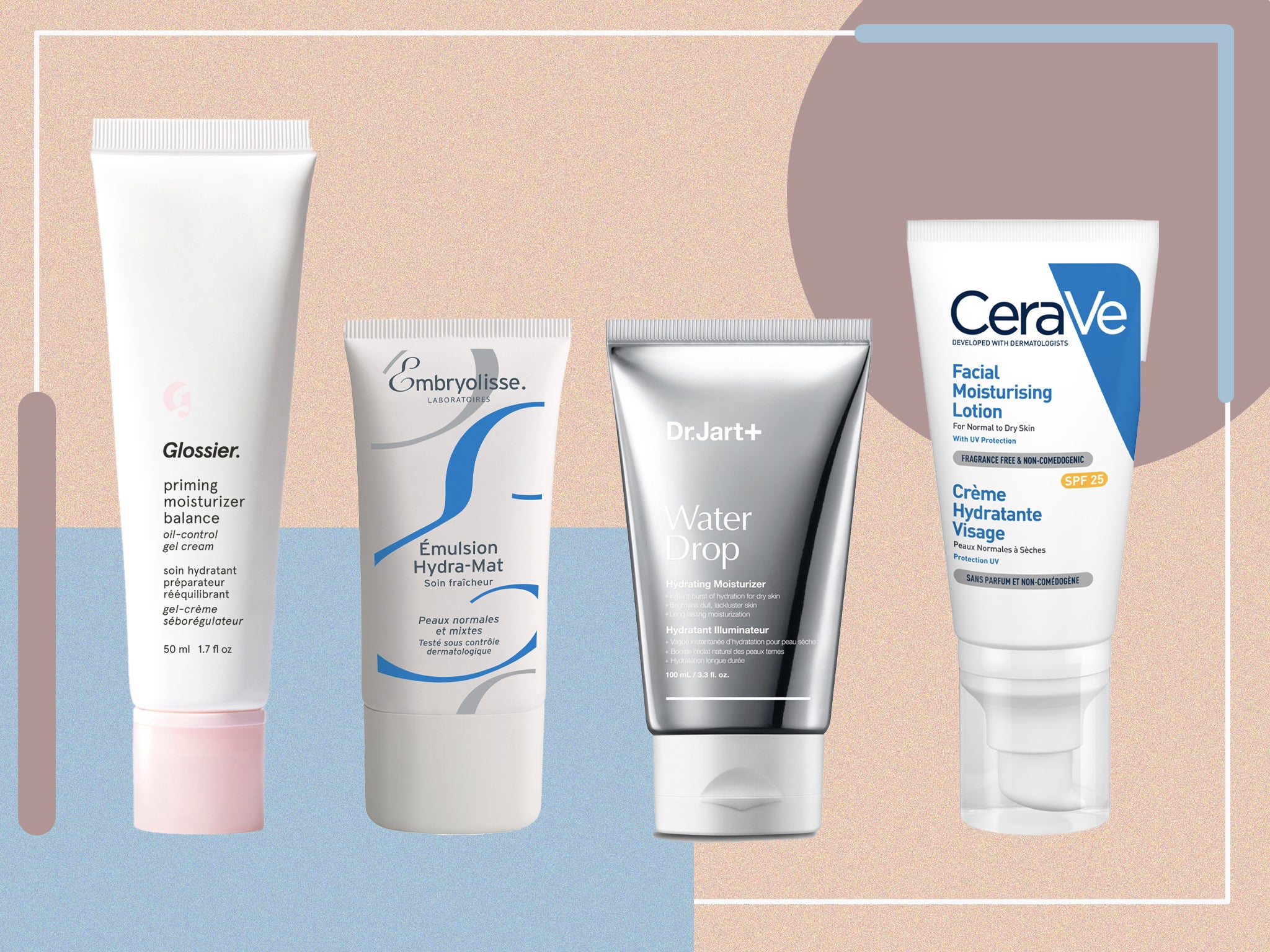
Combination skin refers to skin that is oily on the T-zone (across the forehead and down the nose) and drier on the cheeks. It is often associated with teenagers and, while teenagers are certainly susceptible to combination skin thanks to the hormonal fluctuations in adolescence, it is a skin type that occurs in people of any age.
Skin can and does change, and your skin type isn’t set in stone. The aforementioned hormonal fluctuations, the ageing process, stress, diet and environmental aggressors all play their part in affecting what "type" of skin you have at any one time. However, many dermatologists believe that combination skin is currently the most prevalent type.
The temptation with combination skin is to only apply moisturiser to the cheeks or to avoid it altogether in the belief that it will make the face oilier. This can have the opposite effect with the skin producing more oil to overcompensate.
If you have combination skin, look for a lightweight moisturiser that will hydrate and protect the skin’s barrier. Ingredients to look for include moisturisers such as hyaluronic acid (which sounds aggressive but isn’t – it is a super-hydrator naturally present in the skin), glycerin and squalane; anti-inflammatories, such as niacinamide; and antioxidants, such as vitamin E, that protect the skin from external pollutants.
In testing, we used these moisturisers daily, applying them in the morning after cleansing. We looked for ones that provided hydration without overloading the oily T-zone. The aim is to soothe and moisturise the cheeks and calm the T-zone to prevent it becoming any oilier.
Read more:
- 12 best anti-ageing day creams that help reduce wrinkles
- 15 best anti-ageing serums that target wrinkles, dark spots and dullness
- 14 best tinted moisturisers for a natural and glowy look
- 8 best sheet masks that hydrate, brighten and soothe skin
When it comes to choosing a moisturiser for combination skin, look for one on the gentle side: avoid harsh ingredients that can irritate the skin and exacerbate both the oily and dry areas. Other key terms to check the packaging for are: "non-greasy", "oil-free" and "non-comedogenic" meaning the product won’t clog pores and exacerbate breakouts. While it comes down to personal preference, a lightweight formula often feels better on combination skin than heavy creams.
You can trust our independent reviews. We may earn commission from some of the retailers, but we never allow this to influence selections, which are formed from real-world testing and expert advice. This revenue helps us to fund journalism across The Independent.
The best moisturisers for combination skin for 2021 are:
- Best overall – La Roche-Posay Effaclar Duo [+]: £17, Feelunique.com
- Best gel moisturiser – Clinique dramatically different hydrating jelly: £32, Boots.com
- Best for hydration – Glossier priming moisturiser balance: £23, Glossier.com
- Best for sensitive skin – Embryolisse hydra-mat emulsion: £25.50, Cultbeauty.co.uk
- Best for under make-up – Cosrx oil-free ultra-moisturising lotion: £26.99, Feelunique.com
- Best budget moisturiser – CeraVe facial moisturising lotion SPF25: £12.99, Superdrug.com
- Best day moisturiser – Paula’s Choice clear moisturiser SPF30: £34, Cultbeauty.co.uk
- Best for summer – Honest Beauty hydrogel cream: £25, Cultbeauty.co.uk
- Best for shine control – Sam Farmer moisturiser: £6.50, Samfarmer.co
- Best for glowing skin – Organic Apoteke active face hydrating gel: £29.96, Organicapoteke.com
- Best for dull skin – Dr. Jart+ water drop hydrating moisturiser: £25.95, Parfumdreams.co.uk
1La Roche-Posay Effaclar Duo [+], 40ml

Best: Overall
Especially good for oily, acne-prone skin in both adults and teenagers, this is dubbed as an "anti-blemish moisturiser". With minimalist formula that's dermatologist approved, this French pharmacy moisturiser gets results that are hard to believe from something that feels so gentle. It unclogged our pores and helped existing spots to heal, and ingredients like zinc controlled sebum while glycerin helped with hydration. We love it for its consistent results, and we fully recommend it to the young people in our lives experiencing hormonal breakouts but are also keeping it stocked for ourselves.
2Clinique dramatically different hydrating jelly, 125ml

Best: Gel moisturiser
This is the lightweight gel version of Clinique’s signature dramatically different moisturiser. We love the space age look of this clear formula in its silver packaging. Described as "water-jelly", it does feel as if you’re applying nothing more than water to your face. The "clean-shield technology" acts as a filter against pollution to protect the skin’s barrier, while hyaluronic acid and glycerin combine to attract and retain moisture, both immediately and for 24 hours after applying. The oil-free formulation made us feel we weren’t wearing moisturiser at all and yet kept our skin comfortable all day.
3Glossier priming moisturiser balance, 50ml

Best: For hydration
This moisturiser is a three in one, offering hydration, shine control and refining the look of pores. Containing niacinamide, willow bark extract and marine extract, it smooths over the skin leaving it feeling matte without the drying, powdery feel of traditional mattifiers. Its gel-cream texture glides on, making skin feel super-soft and providing the perfect base for make-up.
The claim that the marine extract will help to control shine all day long stood up to our testing and removed the need for a mid-day powder application to blot excess oil. We felt that it immediately improved the look of our skin, keeping it moisturised, healthy-looking and avoiding that dull, matte look that oil-control products can be guilty of.
4Embryolisse hydra-mat emulsion, 40ml

Best: For sensitive skin
This French pharmaceutical brand started life in a Parisian hospital in 1950 and has built up something of a cult following ever since. This moisturiser is particularly good for those whose combination skin is also sensitive. We love it for doing what it says on the label: it is a gentle emulsion which hydrates and keeps skin matte. Packed with natural ingredients including shea butter, apricot oil and vitamin E for moisture and tapioca starch powder to control shine, it also contains active ingredients including hyaluronic acid and collagen. Dermatologically tested, this kind lotion worked wonders on our dry/oily/sensitive skin.
5Cosrx oil-free ultra-moisturising lotion, 100ml

Best: For under make-up
Fans of this Korean brand praise it for being particularly good on skin that’s prone to acne or breakouts. Birch sap is the main ingredient in this lightweight lotion which we love for its balancing effect on oily/dry skin. It feels equally comfortable on drier cheeks as it does on an oily T-zone and even felt light and gentle enough to go over spots without causing any discomfort or provoking further flare-ups. The gel sinks straight into the skin leaving a smooth surface primed for make-up. We felt it controlled moisture and oil levels brilliantly.
6CeraVe facial moisturising lotion SPF25, 52ml

Best: Budget moisturiser
This simple, affordable moisturiser has legions of fans who love it for its soothing and calming effect on the skin. We love the way it moisturises with minimum fuss, leaving skin feeling comfortable and refreshed both on oily and dry areas. Developed by dermatologists, it not only hydrates but also protects the skin’s barrier with three naturally occurring ceramides, hyaluronic acid and niacinamide. There is also a night version (same packaging but it says PM on the bottle) without SPF.
7Paula’s Choice clear moisturiser SPF30, 60ml
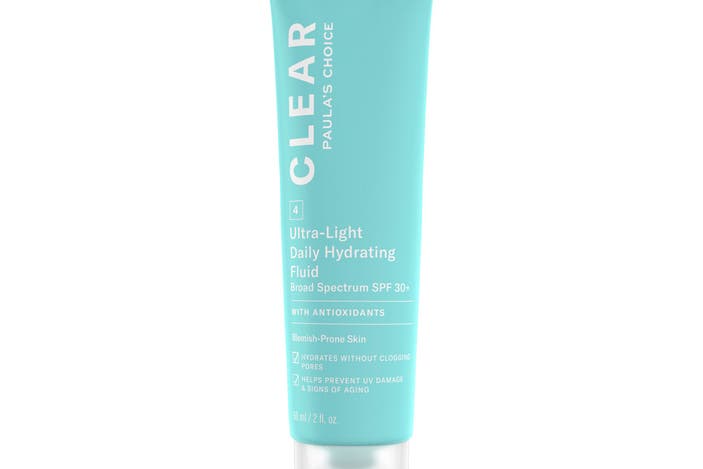
Best: Day moisturiser
Science-backed and well-respected, Paula’s Choice has a no-nonsense philosophy based around ingredients that are proven, tried and tested. This "ultra-light daily hydrating fluid", to give it its full name, is packed with plant-based anti-oxidants which have been developed to keep oily, spot prone skin moisturised and matte. We found the light lotion kept our skin beautifully hydrated and felt fresh and clean to apply. After a week of use, spots were less angry and skin definitely calmer.
8Honest Beauty hydrogel cream, 50ml

Best: For summer
Honest Beauty is Jessica Alba’s organic, ethical beauty range which has proved itself to be more than a celebrity vanity project, winning plaudits and awards. Hydration is supplied by hyaluronic acid and squalane in a "bouncy" formula that moisturises and adds a dewy glow. We were pleasantly surprised by the unusual texture: it starts off as a thick cream that takes a while to sink in but then suddenly changes to a watery, refreshing gel on the skin producing a cooling sensation that made our face feel rejuvenated. This refreshing effect would make it a perfect summer moisturiser.
9Sam Farmer moisturiser, 50ml

Best: For shine control
Aimed at teenagers and young adults, this unisex brand was set up by a father for his children after a shopping trip for face wash revealed the shortcomings of gender-specific skincare. The range is simple to navigate, easy to use and affordable.
Squalane, shea butter and vitamin E hydrates and protects while active ingredient butyl avocadate (from avocado) works to control shine. The light formula balances hydration and oil production and made our tester’s skin very happy. It felt gentle on the skin, absorbed quickly and left skin looking glowy not oily. It's also, reportedly, a favourite among professional film and TV make-up artists who use it as a base for make-up thanks to its ability to control on-camera shine.
10Organic Apoteke active face hydrating gel, 50ml

Best: For glowing skin
This brand prides itself on natural, organic skincare based around the principles of Ayurveda. We found it had a calming effect on our skin. Anti-inflammatory and anti-bacterial ingredients including lemon oil and neem leaf extract work to detoxify and oxygenate skin, helping to reduce breakouts. Amino acids boost microcirculation resulting in a healthy glow (and fulfilling the "I will make you blush" assertion printed on the bottle). The clear gel is very watery so watch out for it going everywhere when you pump it out.
11Dr. Jart+ water drop hydrating moisturiser, 100ml
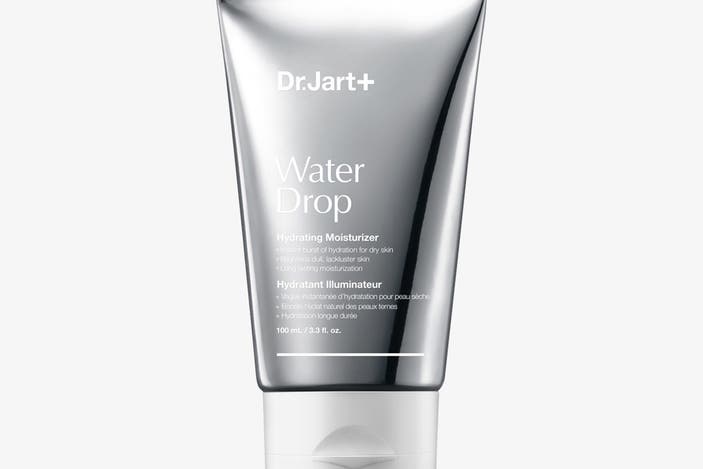
Best: For dull skin
Korean dermatologist brand Dr.Jart+'s slogan is "powered by science, inspired by art" and this moisturiser is a vision in in its mirrored silver packaging. Aside from its looks, we were seriously impressed with the smoothing, soothing formula inside.
Hyaluronic acid, glycerin and niacinamide moisturise and protect the skin’s barrier while nourishing bergamot, sandalwood and lemon add a subtle fragrance. The gel contains water droplets which burst when applied to the skin, refreshing the complexion and delivering brightening hydration. We loved the effect it had, perking up tired, lacklustre skin and imparting a healthy glow.
The verdict: Moisturisers for combination skin
For balancing out combination skin and coping with breakouts we love the consistently good results of La Roche-Posay effaclar duo (+). The teen-friendly Sam Farmer moisturiser deserves a special mention too for its brilliant back to basics, shine-control moisturiser.
Voucher codes
For the latest discounts on beauty and make-up buys, try the links below:
We've also rounded up the best moisturisers for oily skin that won’t clog your pores and for dry skin too


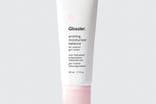







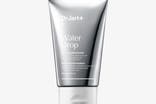
Bookmark popover
Removed from bookmarks